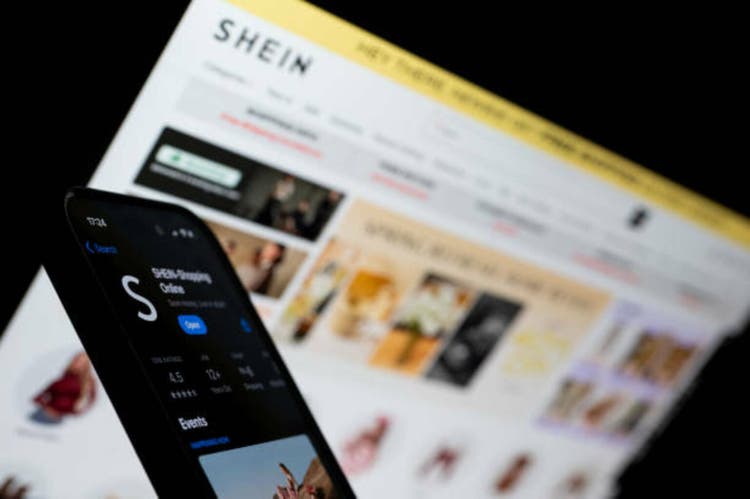Topline
The Supreme Court upheld Friday Texas’ age verification law for pornography and adult websites, a blow to civil rights advocates who argue the law infringes on Americans' privacy rights and could be used against media like R-rated films.
Texas Attorney General Ken Paxton speaks outside the U.S. Supreme Court building on February 26, ... More 2024,
The Washington Post via Getty ImagesKey Facts
The Supreme Court ruled 6-3 along party lines in favor of the legality of Texas’ age-verification law, which requires any companies publishing or distributing “sexual material” online to “use reasonable age verification methods” to make sure users are 18 years of age or older, such as by requiring them to submit identification.
The court ruled against a lobbying group for the adult industry, which argued the law infringed on their First Amendment rights, with Justice Clarence Thomas, writing for the court’s majority, saying states have the power to protect minors from “accessing speech that is obscene from their perspective,” and “no person—adult or child—has a First Amendment right to access such speech without first submitting proof of age.”
A district court judge first blocked the law after it was first passed in 2023, but a panel of appeals court judges let it take effect, with plaintiffs arguing to the Supreme Court that the appeals court should have used a more stringent legal test to determine whether the law was constitutional.
Justices ruled Friday that the policy only “incidentally burdens the protected speech of adults,” which means it doesn’t have to clear a higher legal bar to be constitutional.
The case drew national attention for its potential impacts on the internet, with the American Civil Liberties Union—which helped represent plaintiffs in the case—arguing the law infringes on Americans’ right to privacy by requiring people to submit identification to access websites, and is impermissibly vague and could be used to restrict not only to pornography, but also materials like R-rated movies, sex education videos or romance novels.
Free Speech Coalition, which brought the case, criticized the court’s ruling Friday, saying in a statement, “As it has been throughout history, pornography is once again the canary in the coal mine of free expression ... The outcome is disastrous for Texans and for anyone who cares about freedom of speech and privacy online.”
Chief Critic
In her dissent from the court’s opinion, Justice Elena Kagan accused the court’s majority of adopting “special-for-the-occasion, difficult-to-decipher rules” solely because “they are needed to get to what [the majority] considers the right result: giving Texas permission to enforce its statute.” Kagan, joined by liberal Justices Sonia Sotomayor and Ketanji Brown Jackson, argued Texas’ law should have been subject to the higher legal standard, at which point the law still could have been upheld or struck down. If the law “is the best Texas can do—meaning, the means of achieving the State’s objective while restricting adults’ speech rights the least—then the statute” should be upheld, Kagan wrote, but the court should not have eliminated the possibility that there could be a less-restrictive way to keep minors from accessing objectionable material. “The State should be foreclosed from restricting adults’ access to protected speech if that is not in fact necessary,” Kagan wrote.
Which Other States Could The Court’s Ruling Affect?
Texas is one of approximately 20 states that has passed some form of age verification law, according to the Free Speech Coalition, a trade group representing the adult entertainment industry and the lead plaintiffs in the lawsuit. In addition to Texas, age verification laws are already in effect in Alabama, Arkansas, Florida, Idaho, Indiana, Kansas, Kentucky, Louisiana, Mississippi, Montana, Nebraska, North Carolina, Oklahoma, South Carolina, Tennessee, Texas, Utah and Virginia. Additional laws are slated to take effect over the summer in Arizona, Georgia, Missouri, North Dakota, South Dakota and Wyoming. Those laws are now likely to be upheld, should they be challenged in court, in light of the Friday ruling.
Key Background
The court’s ruling is the latest in a string of major decisions that justices have had to make in recent years considering the future of the internet. Justices ruled last year to allow the Biden administration to contact social media companies about removing misinformation, dealing a blow to GOP-led states who claimed doing so was unlawful, but the court punted on Texas and Florida’s laws banning social media “censorship” against unfavorable viewpoints, sending the cases back to lower court without deciding whether the laws violated the First Amendment. In a unanimous ruling in 2023, the court also shielded Google and Twitter from claims the companies should face legal liability for terrorist attacks because they gave terror groups a platform, declining to change Section 230, a legal provision that broadly ensures social media companies aren’t legally liable for content posted on their platforms. Most recently, the court upheld Congress’ ban on TikTok, which forced the company to divest from parent company ByteDance, though President Donald Trump later paused the law from taking effect, and TikTok has remained operational in the U.S.
Further Reading
ForbesSupreme Court Throws Out ‘Social Media Censorship’ Cases In Florida And TexasBy Alison Durkee
.png)











 English (US) ·
English (US) ·